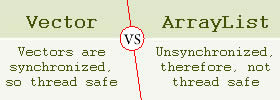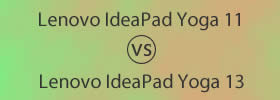Difference between Drupal, Joomla and Wordpress
Key Difference: Drupal is a free and open-source content management framework (CMF) that is written in PHP language. It is used for blogging websites as well as for political and government websites. Joomla is free and open-source content management system (CMS) that allows users to build websites and online applications. It is considered to be quite easy to use and understand for many users. WordPress is a free and open source blogging tool and content management system (CMS). It is written in PHP and MySQL language. It is a popular blogging site.
 Each website has a front-end and a back-end approach to the system. Originally creating a website would be a time-consuming and expensive task. To build the website from ground up and then maintain it required a team of experienced developers, which were not cheap. There was not do-it-yourself approach and if you wanted to learn, you would have to take courses and learn everything from the basics, including HTML language. Since, the popularity of websites and the internet has grown; it has resulted in many content management systems (CMS) to become popular. These systems can take care of the back-end of the website by using a simple tool, WYSIWYG (What You See is What you Get) editor. This creates a back-end, where data is inputted shows up automatically on the website. There are many different CMS systems available on the market. The three most popular include WordPress, Joomla and Drupal, respectively.
Each website has a front-end and a back-end approach to the system. Originally creating a website would be a time-consuming and expensive task. To build the website from ground up and then maintain it required a team of experienced developers, which were not cheap. There was not do-it-yourself approach and if you wanted to learn, you would have to take courses and learn everything from the basics, including HTML language. Since, the popularity of websites and the internet has grown; it has resulted in many content management systems (CMS) to become popular. These systems can take care of the back-end of the website by using a simple tool, WYSIWYG (What You See is What you Get) editor. This creates a back-end, where data is inputted shows up automatically on the website. There are many different CMS systems available on the market. The three most popular include WordPress, Joomla and Drupal, respectively.
Drupal is a free and open-source content management framework (CMF) that is written in PHP language. It is used for blogging websites as well as for political and government websites. Wikipedia states that the standard release of Drupal, known as Deupal core offers features such as “user account registration and maintenance, menu management, RSS feeds, page layout customization, and system administration.” It can be used as a brochureware website, a single- or multi-user blog, an Internet forum, or a community website providing for user-generated content. Drupal does not require any programming skills from a developer for basic installation and administration. Drupal was initially written by Dries Buytaert on a message board, which further became an open source project. Drupal is derived from Dutch word ‘druppel’, which means "drop".
 Joomla is free and open-source content management system (CMS) that allows users to build websites and online applications. It is considered to be quite easy to use and understand for many users. Joomla is more commonly used for simple websites, but it can also handle websites that are complex with a little extra training. The company claims that the website can be used for almost any website of any shape and size. Joomla is written in PHP and uses object-oriented programming (OOP) techniques and software design patterns. Joomla offers more out of the box themes and features such as page caching, RSS feeds, printable versions of pages, news flashes, blogs, polls, search, and support for language internationalization. It is currently the second-most used CMS after WordPress. Joomla was created in 2005 following the creation of a website called OpenSourceMatters.org that distributed information to users, developers, web designers and the community in general.
Joomla is free and open-source content management system (CMS) that allows users to build websites and online applications. It is considered to be quite easy to use and understand for many users. Joomla is more commonly used for simple websites, but it can also handle websites that are complex with a little extra training. The company claims that the website can be used for almost any website of any shape and size. Joomla is written in PHP and uses object-oriented programming (OOP) techniques and software design patterns. Joomla offers more out of the box themes and features such as page caching, RSS feeds, printable versions of pages, news flashes, blogs, polls, search, and support for language internationalization. It is currently the second-most used CMS after WordPress. Joomla was created in 2005 following the creation of a website called OpenSourceMatters.org that distributed information to users, developers, web designers and the community in general.
WordPress is a free and open source blogging tool and content management system (CMS). It is written in PHP and MySQL language. It is most popular as a blogging website, which offers users set up websites in order to create and maintain a blog. According to Wikipedia, it is also the most popular blogging website in the world. The first version was released on May 27, 2003 by Matt Mullenweg and Mike Little, who are the website’s founders. It was a part of b2/cafelog. WordPress boasts offering various features such as themes, plugins, widgets, multi-user and multi-blogging and mobiles. It is also one of the most popular CMS as it does not require much maintenance, is easy to learn and even easier to understand. It does not require understanding programming languages and working with them. A person with only basic knowledge of operating a computer can simply understand working with WordPress. WordPress is also noted for having an excellent and simplistic layout and for being fast and quick.
 All of these systems each differ in the way the website is designed or the layout is provided. Each also handles the back-end system differently. There is no particular way to say which one is better than the other, as it depends on the need, like and capability of the user. Each one is also different in terms of difficulty level, having different learning curves. WordPress is considered to the most easy to learn, understand and set up. It is also better in terms of aesthetic appeal, but it is mostly like a blogging website. The newer versions of WordPress have also incorporated different layouts to create different types of websites. WordPress is considered to work best with very simplistic websites. Joomla is a bit more complicated than WordPress and requires a little extra time and patience to understand the ins and out of the backend system. Joomla is said to work best with semi-complex websites. Joomla offers various different extensions and add-ons to customize the website. Drupal is a bit more complicated and requires understanding basic programming language. It also has a steeper learning curve and requires additional time to learn and build-up. Drupal is mostly considered for big and complex websites. Drupal is also considered to be a bit slow compared to the other two.
All of these systems each differ in the way the website is designed or the layout is provided. Each also handles the back-end system differently. There is no particular way to say which one is better than the other, as it depends on the need, like and capability of the user. Each one is also different in terms of difficulty level, having different learning curves. WordPress is considered to the most easy to learn, understand and set up. It is also better in terms of aesthetic appeal, but it is mostly like a blogging website. The newer versions of WordPress have also incorporated different layouts to create different types of websites. WordPress is considered to work best with very simplistic websites. Joomla is a bit more complicated than WordPress and requires a little extra time and patience to understand the ins and out of the backend system. Joomla is said to work best with semi-complex websites. Joomla offers various different extensions and add-ons to customize the website. Drupal is a bit more complicated and requires understanding basic programming language. It also has a steeper learning curve and requires additional time to learn and build-up. Drupal is mostly considered for big and complex websites. Drupal is also considered to be a bit slow compared to the other two.
Each CMS comes with its own strengths such as in terms of blogging, WordPress has the easiest way to create and maintain a website. While Drupal has more strength in social networking, it allows users to more flexibility. Drupal and Joomla lean more towards e-commerce websites, while WordPress is more towards personal websites. Since all of these are open source, they can be downloaded and altered for free. However, while Drupal and WordPress offers free extensions and plug-ins, Joomla also has commercial extensions that can be bought. In the end, it all depends on what the user wants and what kind of website he/she are trying to build.
|
|
WordPress |
Drupal |
Joomla |
|
Description |
WordPress is a free and open-source blogging website and a CMS that is written in PHP. |
Drupal is a free and open-source content management framework (CMF) that is written in PHP language. |
Joomla is a free and open source content management system for publish content online and is written in PHP. |
|
Type |
Blog publishing system |
Content management framework, Content management system, Community and Blog software |
Content management framework |
|
Operating system |
Cross-platform |
Cross-platform |
Cross-platform |
|
Written in |
PHP and MySQL |
PHP |
PHP |
|
Initial Release |
May 27, 2003 |
January 2001 |
August 2005 |
|
Stable release |
3.5.1 |
7.19 |
2.5.11 (LTS) |
|
Latest release date |
January 24, 2013 |
16 January 2013 |
April 26, 2013 |
|
License |
GNU GPLv2 |
GPLv2 or later |
GNU General Public License |
|
Website |
wordpress.org |
drupal.org |
joomla.org |
|
Features |
Themes, plugins, widgets, multi-user and multi-blogging and mobiles. |
Known for its powerful taxonomy and ability to tag, categorize and organize complex content. |
Joomla is known simple content-oriented websites and is known for its out of the box themes and layouts. |
|
Benefits |
Best for simple websites, blogging and new sites. Easier to manage for do-it-yourselfers. Offers additional add-ons for easy functionality of the site. It also offers a theme market. |
Is better for complex, advanced and versatile sites; for sites that require complex data organization; for community platform sites with multiple users; for online stores. Supports multiple site stakeholders, cleaner admin experience, more features and offers good security. |
It is better for simple websites; it is considered far easy to learn if one knows nothing about coding; it has a large number of out of the box features; huge number of communities with many extensions. |
|
Time |
WordPress takes less time in order to start up and activate a website. |
Drupal takes an approximately 2-3 weeks to understand and launch a website. |
Joomla is a bit easier to understand and can take from 2-3 weeks to understand and launch a website. |
|
Example Sites |
onsugar.com |
whitehouse.gov ; data.gov.uk |
linux.com; peugeot.com; iTWire.com |
Image Courtesy: matt-terry.com, kb.webhosting.uk.com, speakertext.com









Add new comment